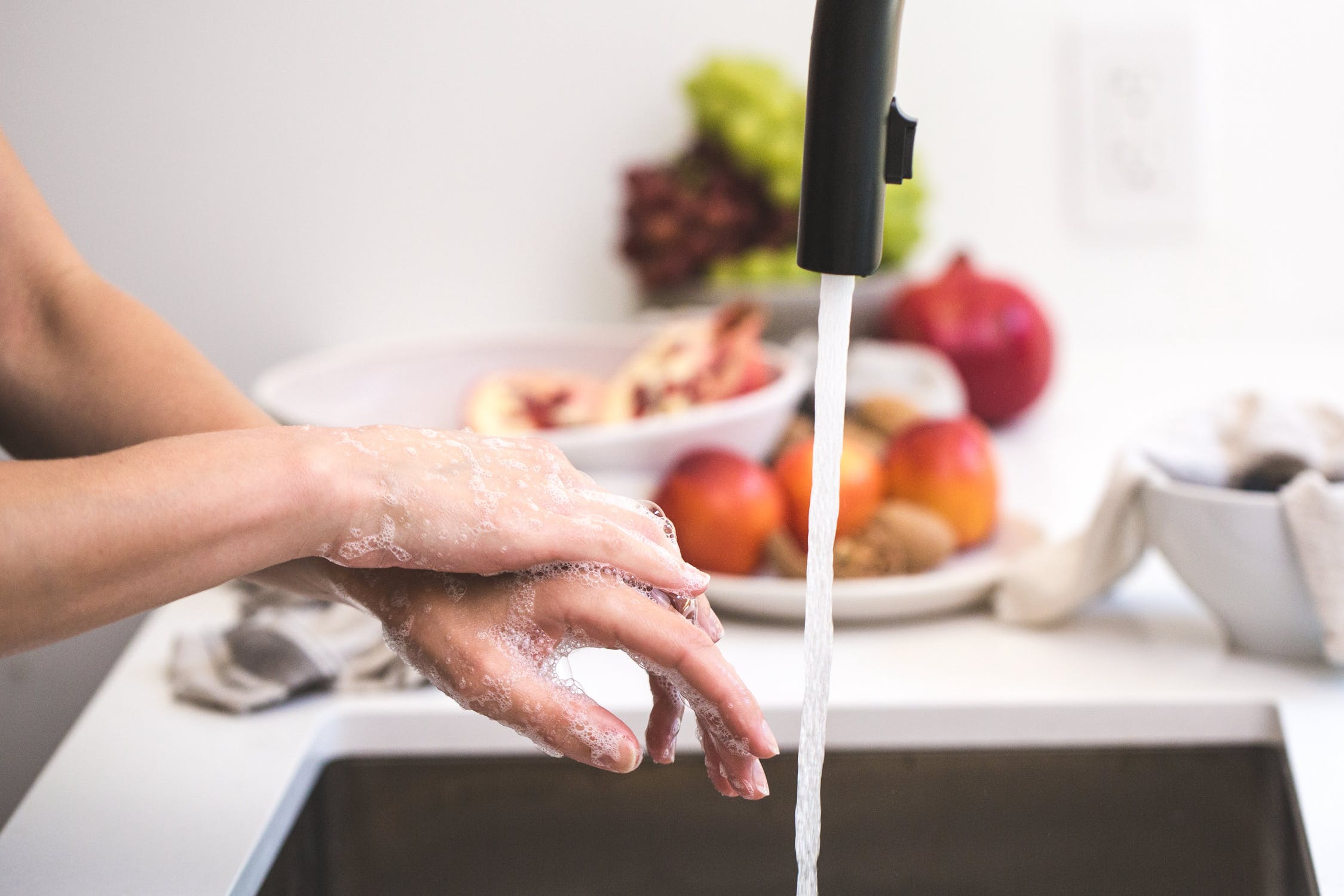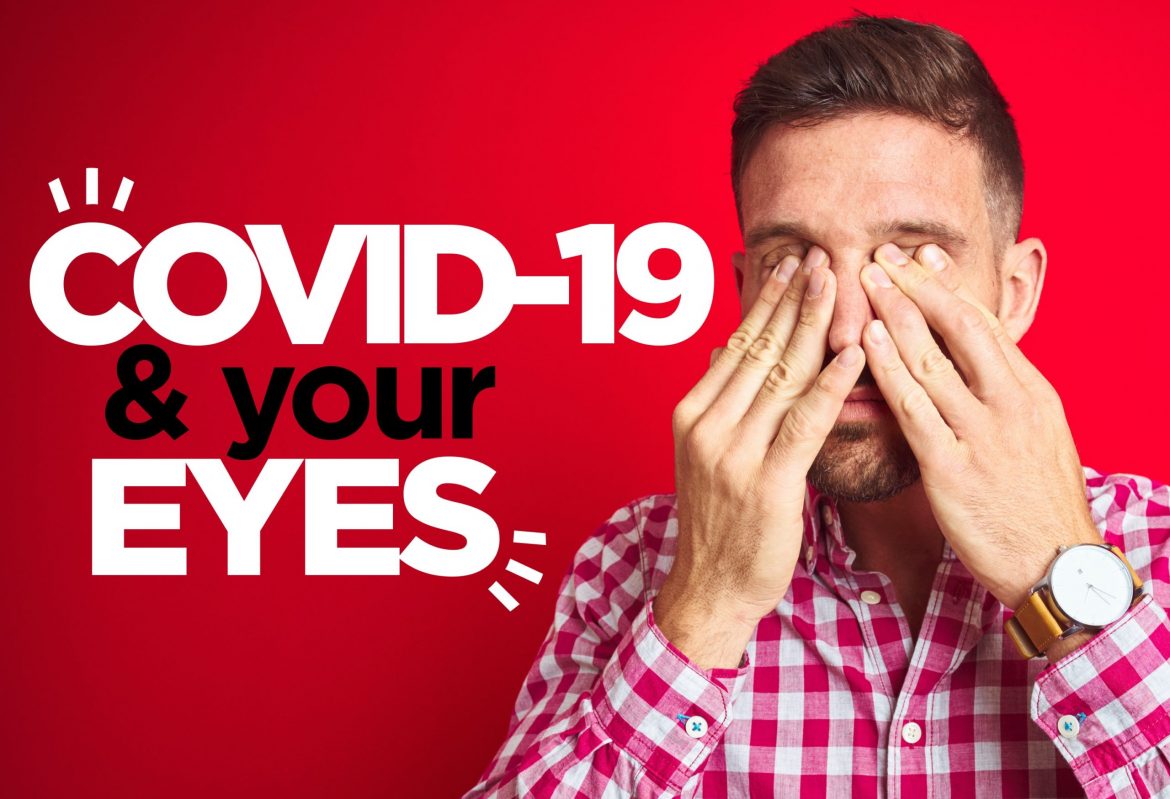
During the coronavirus pandemic, it’s become common knowledge that touching your nose, mouth, or any part of your face, is a risk.
Your eyes are an important part of the equation too. You can become infected by touching your eyes after touching something on which the virus is present.
If you wear glasses or contact lenses, obviously it’s not easy to avoid touching your eyes. In this article, we’ll look at what you should know—and try to do—to safeguard your eyes and your overall health during these unprecedented times.
Keep your hands clean
First and foremost, it’s vital to keep your hands clean. While it’s always important to do so, it’s especially important now, and even more so if you wear contact lenses.
You should wash your hands before—and after—you put-in and take-out your contact lenses.
According to the Centers for Disease Control (CDC), coronavirus can spread when drops from the respiratory system of someone who’s been infected are transferred to another person through talking, sneezing, or coughing. The virus may also be able to survive on hard surfaces for multiple days, meaning you can touch one such surface and then contract the disease by touching your nose, mouth, or eyes.
Even if you wear prescription eyeglasses, it is important to keep your hands clean. Since COVID-19 can exist for a time on hard surfaces, you can transfer the virus from one surface to your eyewear. Make sure your glasses remain clean.

The CDC recommends the following:
- Use soap and water and wash your hands for a minimum of 20 seconds. This is crucial after you’ve been out in public or around a number of people.
- If soap and water are unavailable, use a hand sanitizer containing a minimum of 60 percent alcohol. Cover your hands and rub together until dry.
Are you a presbyope?
Let’s open our online dictionary…
A presbyope is a person with presbyopia who’s become farsighted because the elasticity of their crystalline lenses has deteriorated.
Translation: a person 40-plus of age (typically) who struggles to focus up-close.
At the very least, the solution is reading glasses (or “readers’). If you’re 40 or older, you’re probably well acquainted with this inconvenient fact of life. And, if you’ve been following the COVID-19 story, you’re also aware that with increased age comes increased risk.
You can shop a huge selection of readers on EZContacts.
“Most presbyopes require reading glasses and they may be putting them on and off their face multiple times a day,” writes the Centre for Ocular Research & Education.
The repeated physical contact provides greater opportunity to contract coronavirus. Therefore, make sure you’re not only washing your hands, but disinfecting your eyeglasses, as well.
Is it safe to wear contacts?
Yes. There is no need to be alarmed about using contact lenses. A post on the Mayo Clinic’s site may put your fears to rest:
Dr. Gregory Poland, an infectious diseases expert, says it is safe for people to continue wearing contact lenses as long as they remain diligent about washing their hands.
Here’s more from Healio…
The CDC and data from a new peer-reviewed paper by five prominent ocular scientists confirm that healthy individuals can continue to wear contact lenses.
However, if you should somehow find that wearing contact lenses irritates your eyes and prompts you to rub them, consider the following:
- If you absolutely must rub your eyes, do so with a tissue instead of your finger. You might find adding moisturizing eyedrops to your regular eye routine helpful as well.
- If you are a contact lens wearer, but have prescription eyeglasses on hand as well, you might wear your eyeglasses more. Doing so should reduce any irritation and help you remember not to touch your eyes.
In any case, be sure to disinfect your prescription contact lenses according to package directions and dispose of daily disposables every night after taking them out.
Keep a good supply on hand
Need to stock up on your prescriptions and supplies?
If your insurance won’t allow you to get an extended supply of your prescription, talk to your eye doctor or pharmacist because they may be able to assist in getting approval from your insurance company.
When the time comes to pick up your prescription, have it delivered or opt for curb-side pickup. Better yet: order your contact lenses online.
Will your eye care change?
Yes, you’re likely to see the approach to your medical eye care change in the wake of the coronavirus. Eye doctors of all types are being urged to not see patients, except for emergencies.
If you have a routine eye exam coming up, it will likely be rescheduled. The same goes for any sort of elective eye procedures or surgeries you have planned.
Still, if you notice sudden changes in your vision or experience any sort of pain in the eyes, contact your eye doctor right away.
If you do have to go to the eye doctor, you may be asked to wait in your car rather than in the waiting room to avoid large groups of people from congregating in one place. To that end, the number of people allowed in the office may be limited, so only bring someone with you if your procedure or visit requires it.
According to American Academy of Ophthalmology, “Your doctor may ask you to wait to speak until after your eye exam is complete.” This ensures you and your doctor comply with social distancing recommendations and can speak to one another from a safe distance.
If you feel uncomfortable about physically going into your eye doctor’s office, see if they offer virtual visits. Of course, If you’re sick or know you’ve been in contact with someone who’s tested positive for coronavirus, stay home and reschedule your appointment for a later date.

